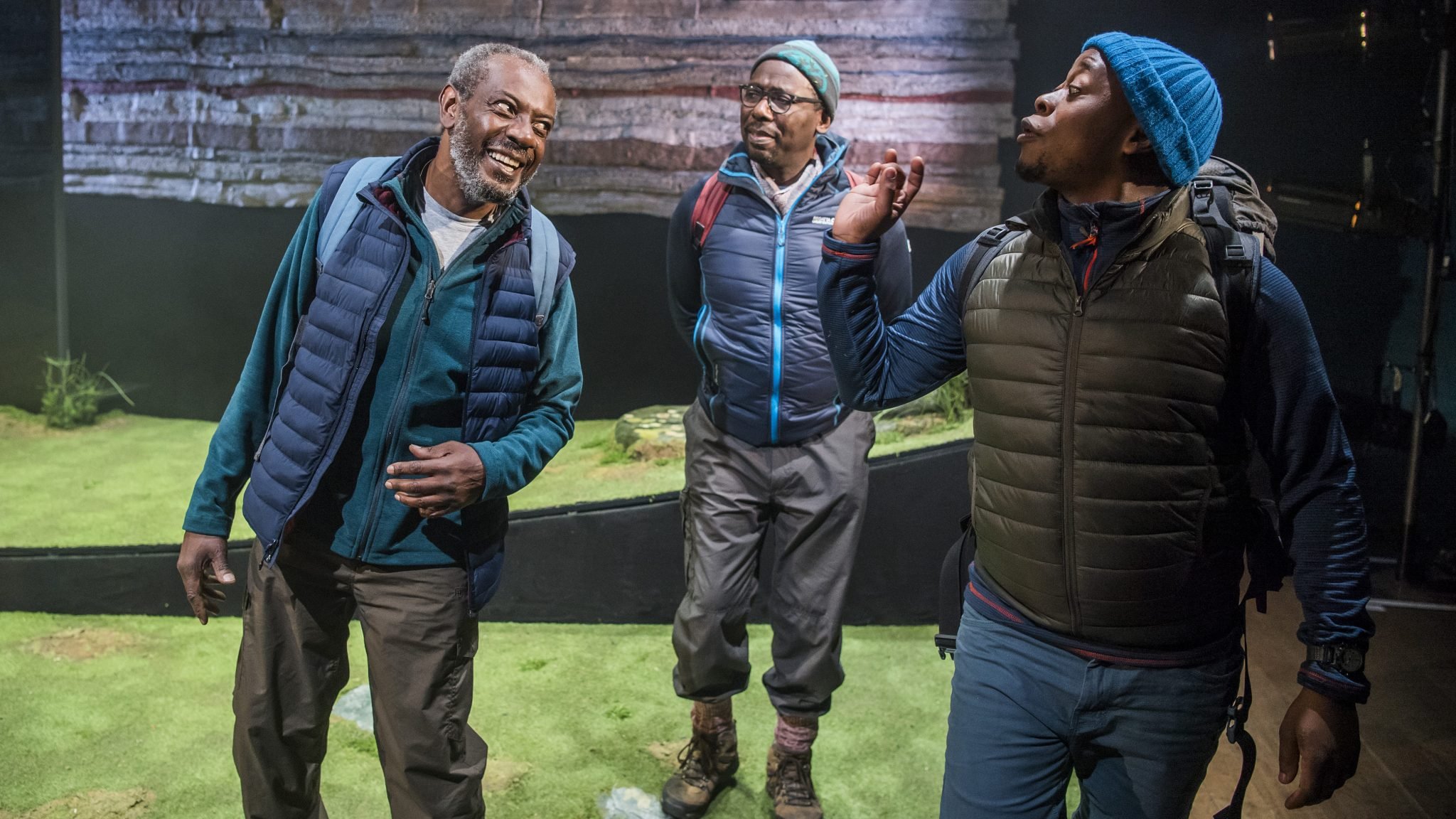“Revolution Mix is about doing, not talking. When the subject of ‘Diversity’ comes up, people gather in rooms and talk. If you sit in that room, you will hear more reasons why things can’t change, than why the can. But there is no question that there is an appetite for change. Revolution Mix is what we are all going to do.” These are the words of Dawn Walton, Artistic Director of Eclipse Theatre. Revolution Mix is a three-year theatre project seeking to bring to the fore new stories about Black British experience, ones that go beyond stereotypical narratives of slavery, immigration and youth violent crime, written and performed by black writers and actors. Black Men Walking, written by the rapper Testament, is the first such play to be commissioned as part of the project, taking inspiration from a real-life black men’s walking group in Yorkshire.
In Black Men Walking, we encounter three black men, whose life experiences collide to make for comic, and sometimes tense, exchanges. Thomas, Richard and Matthew, played by Tyrone Higgins, Tonderai Munyevu and Trevor Laird respectively, form a dynamic trio, joshing each other but, at crucial points, taking care of one another too. Laird is convincing as a man torn between two ways of thinking in relation to race. We understand that, though in love with his wife, the Matthew struggles to reconcile her view of the continued discussion of race as an obstacle to social progress with his own lived experience of blackness.
Munyevu provides frequent comic relief, interspersed with personal reflections on life and loss. Higgins’s portrayal of an initially defeated man is compelling, whilst Dorcas Sebuyange shines as Ayeesha, a teenager who aspires to be a rapper, whose perspective on life comes into conflict, with those of the other characters. The most vivid scenes are those in which all four are onstage, in which physical theatre and vocal power combine to produce captivating drama. Testament’s deft handling of prose and rap complement these scenes. Ayeesha’s two monologues particularly linger in the mind, both delivered with flair. Besides this, the playwright deserves credit for mining the richness of Black British and diasporic history, casting his characters, indeed spectators, as the inheritors of an enduring contribution to the social, political, economic and cultural landscapes of this country.
Beyond the arresting power of words, Testament alludes to more serious and sombre themes: the under-discussed issue of mental health in society at large, but especially in ethnic minority communities – what it means to be a man, our complex attachments to people and to places, and the ever-increasing role of technology in our lives. Such complex fault lines in our identities are arguably visible in Simon Kenny’s and Lee Curran’s set and light design.
It is simply not possible to see this play in the same light given the recent scandal over the rights of those who came to Britain as part of the “Windrush Generation” to remain in this country. Thomas’ question sums up the scandal perfectly: “How long do we have to be here to be English?”. Not only do affirmations such as “this land is ours” and “our history [is] worked into the earth” resonate even more so now that we know how terribly some British citizens have been treated, they also imbue the act of walking with fresh, and political, charge.
An exuberant meditation on nature, belonging and blackness, Black Men Walking is a great success. Dawn Walton, her cast and crew should be commended for their efforts. From the Yorkshire Moors, where will “Revolution Mix” take us next?



